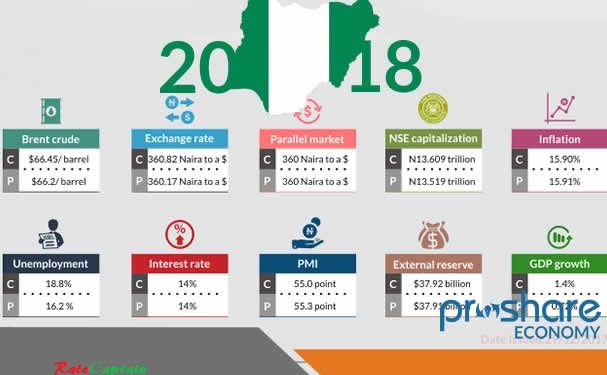2017 was reflective of a significant improvement in Nigeria’s oil sector, which led to the country’s exit from a recession, boosted FX availabilty in the economy and increased foreign investor participation in the nation’s capital markets.
Going into 2018, we see a continued oil sector led improvement in economic activities, with GDP growth of c.+2.50% given the increased engagement in the Niger Delta and stability in Brent oil price on the back of the OPEC and non-OPEC agreement to extend curbs till the end of 2018.
The on-going increase in oil production; likelihood that Brent oil price would remain high; and the proposed increase in the VAT rate on luxury items should be a positive for government revenues.
Government’s spending capacity should also be aided by the continued efforts to refinance USD2.5billion worth of domestic debt with foreign borrowings, which may further reduce the nation’s debt service to revenue ratio.
Stability in the NGN/USD rate and the high base effect of 2017 should see headline inflation trend towards the CBN’s c.11-12% target. However, the scarcity of PMS;administration’s expansionary fiscal policy; and election spending; pose a downside rise to our outlook.
As the increase in consumer prices slow, we could see the monetary policy authority reduce the benchmark interest rate by as much as c.-200bps. This combined with the FG’s intention to refinance local with offshore debt could see yields in the fixed income space decline.
This should be a positive for the performance of the equities market in H1 2018, in addition to recent retention of Nigeria’s equities in the MSCI’s Frontier index and the upbeat outlook for tge economy, which may support corporate earnings. With this said, we identify a potential drawdown on concern around electioneering activities in H2 2018.











